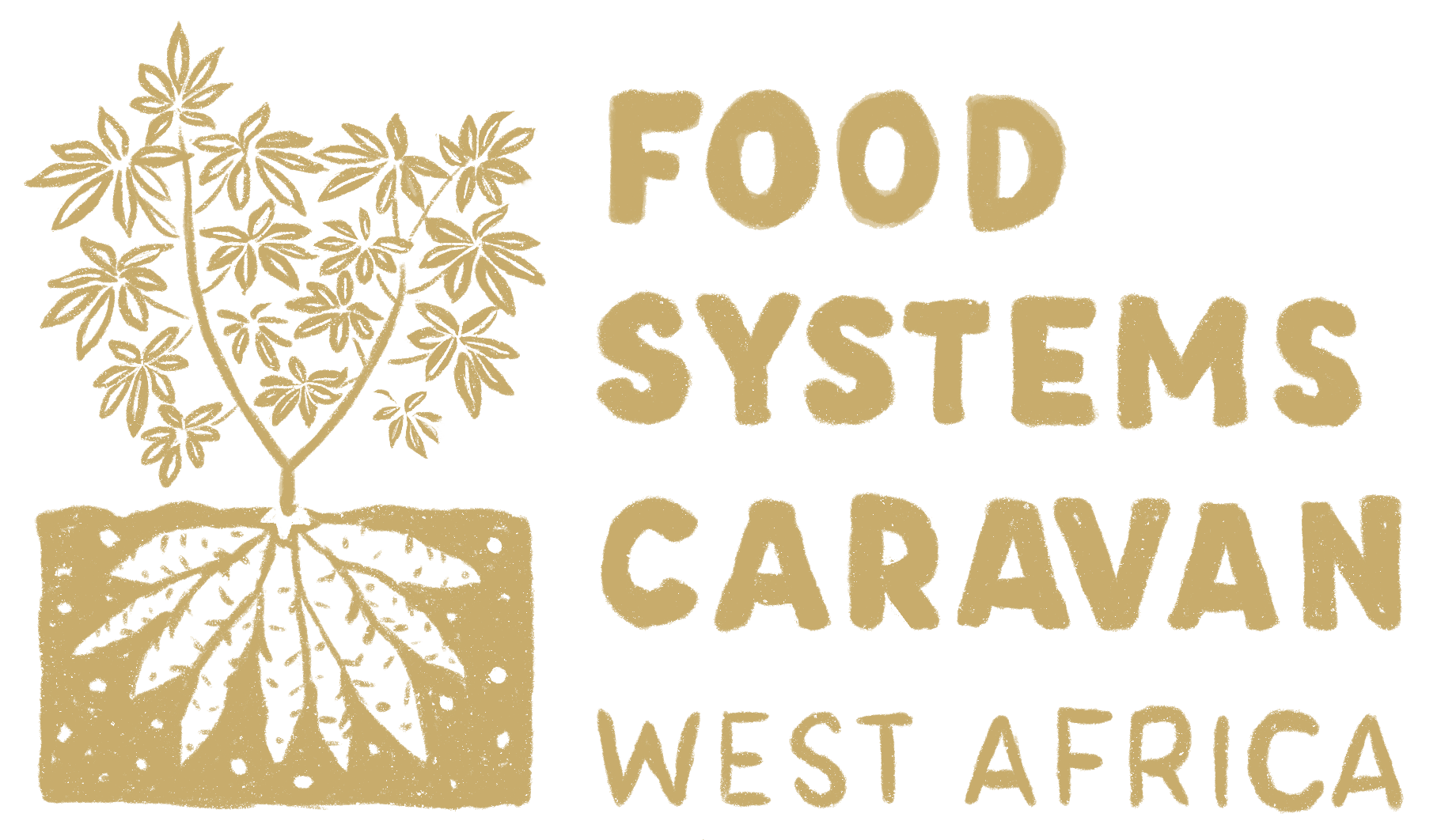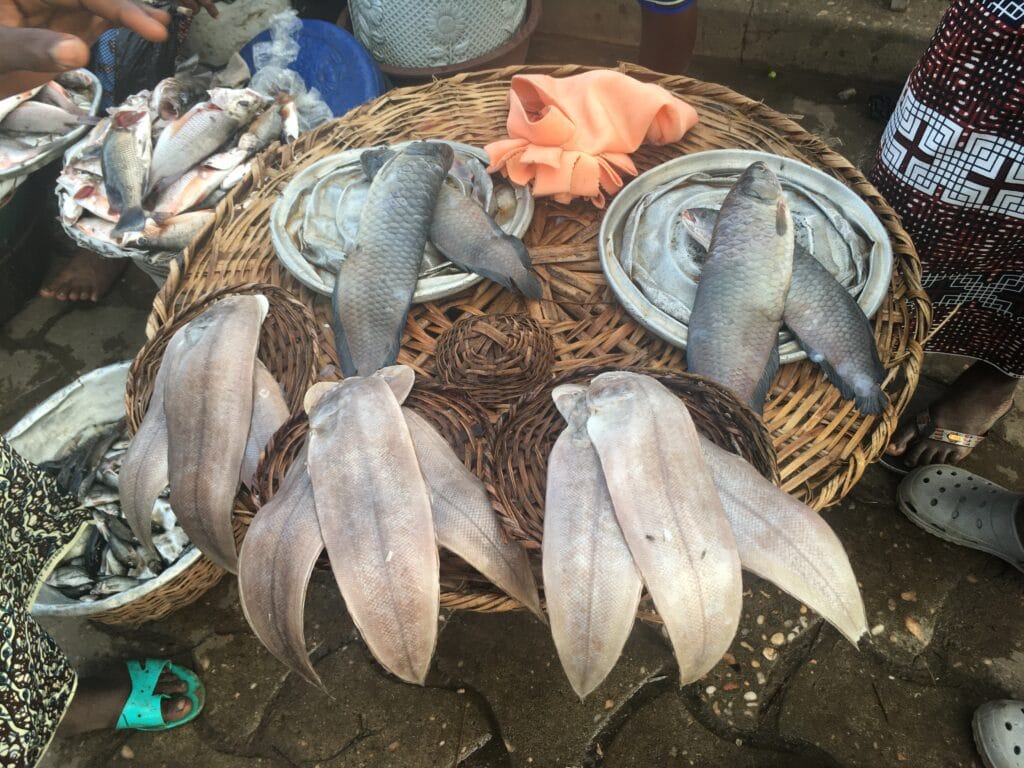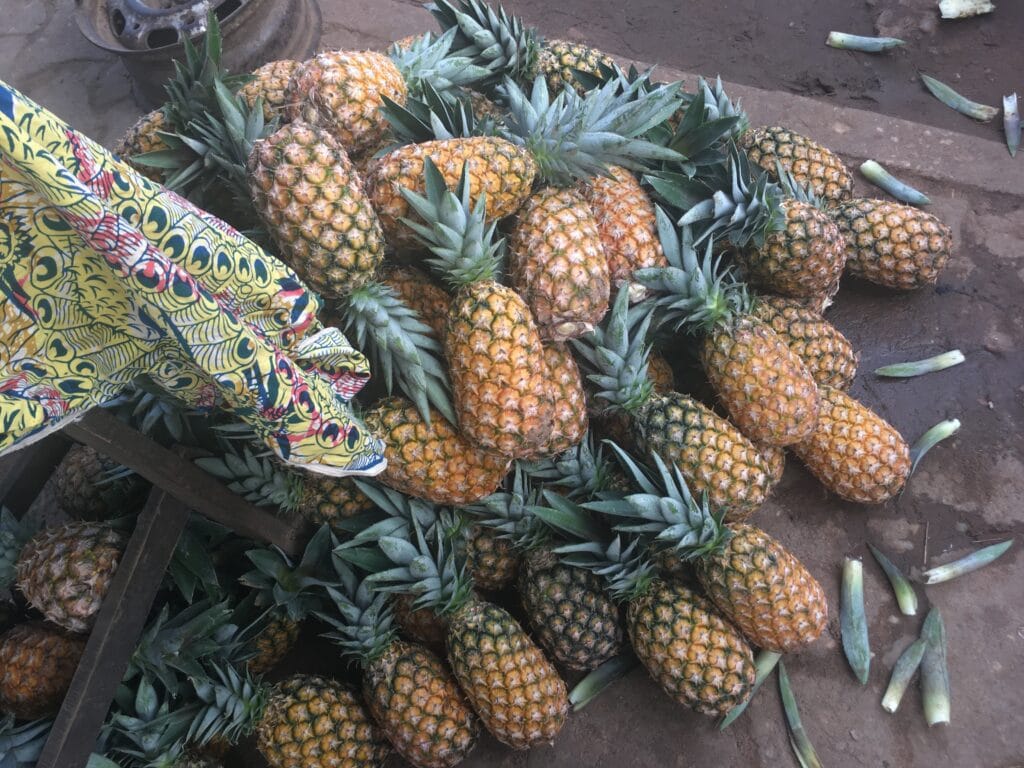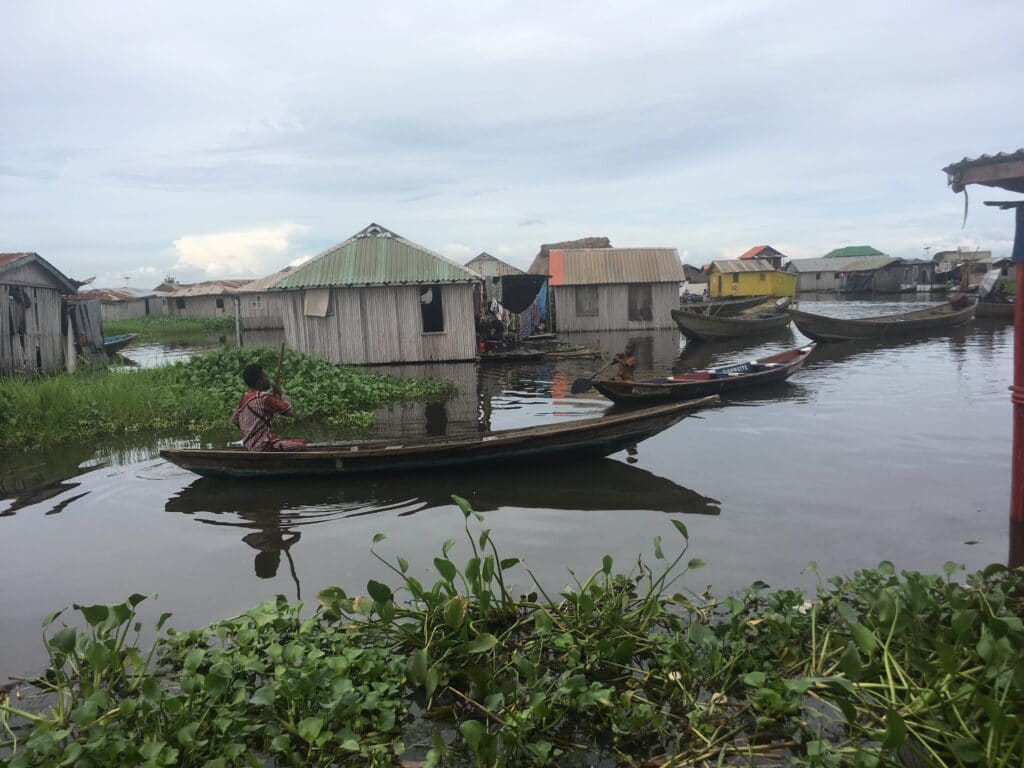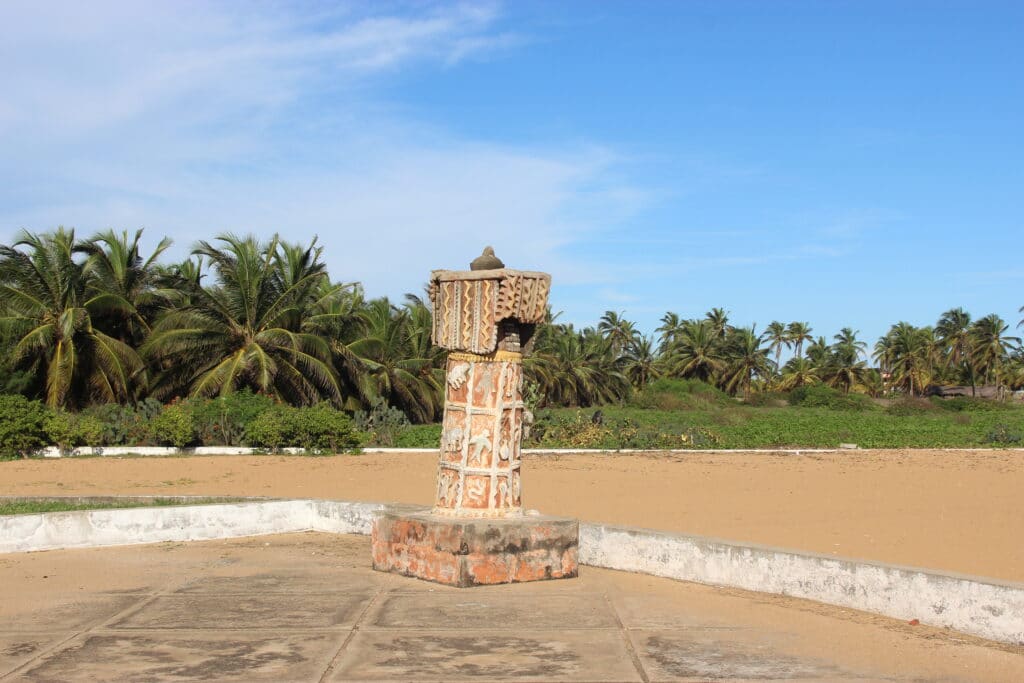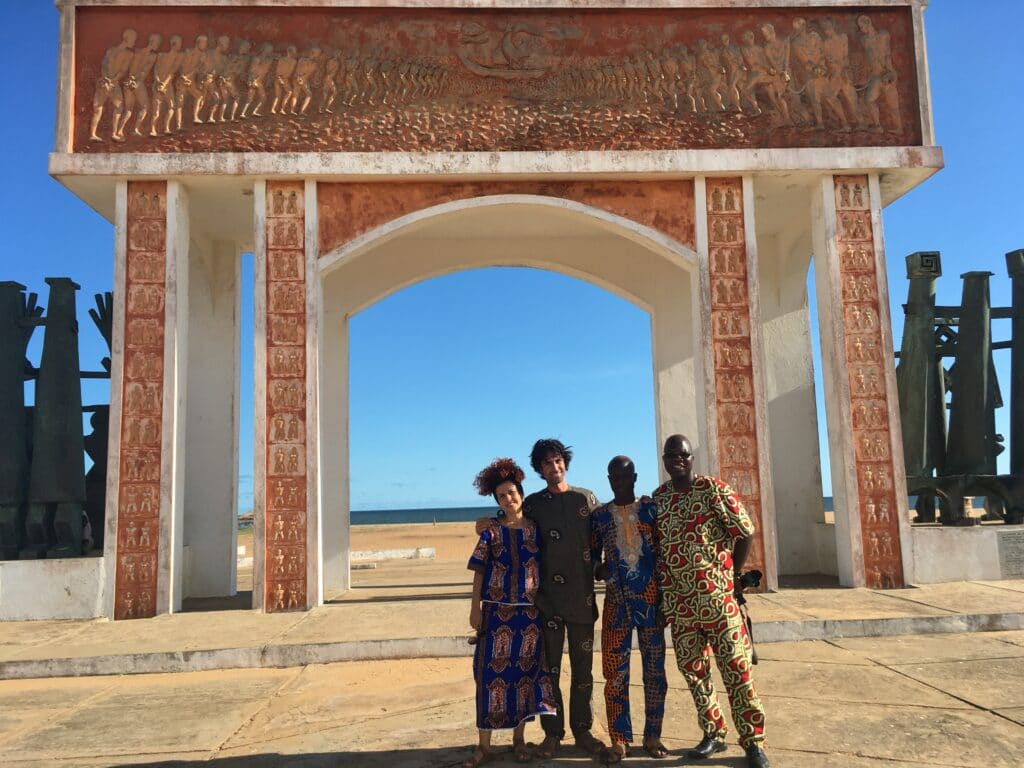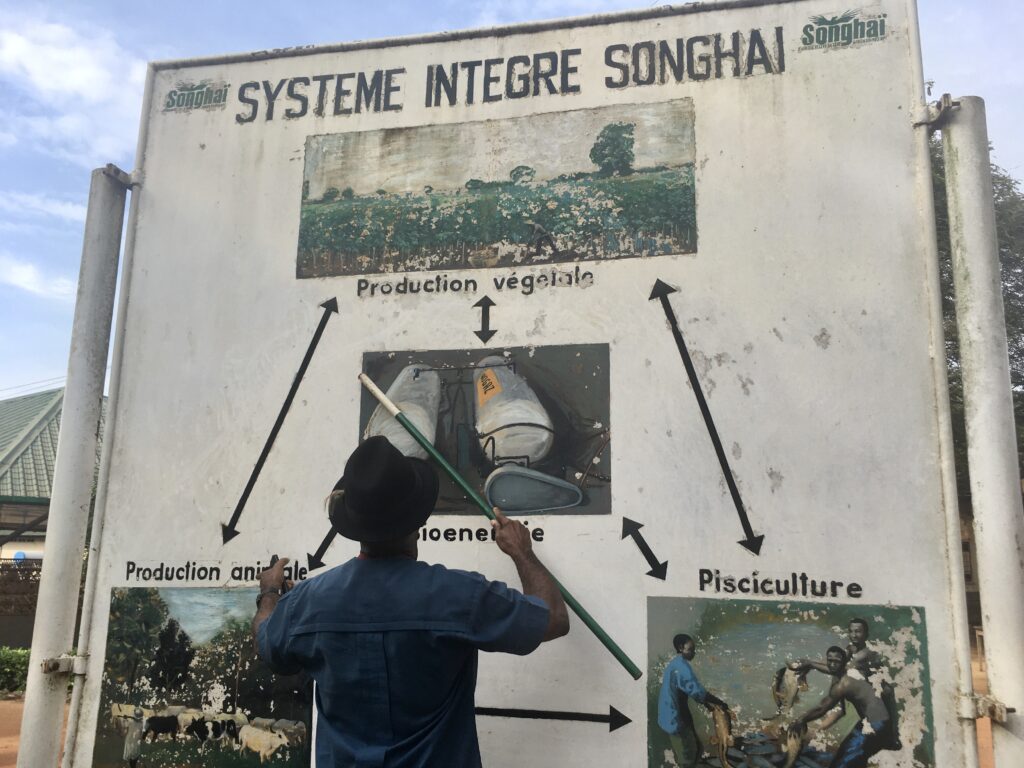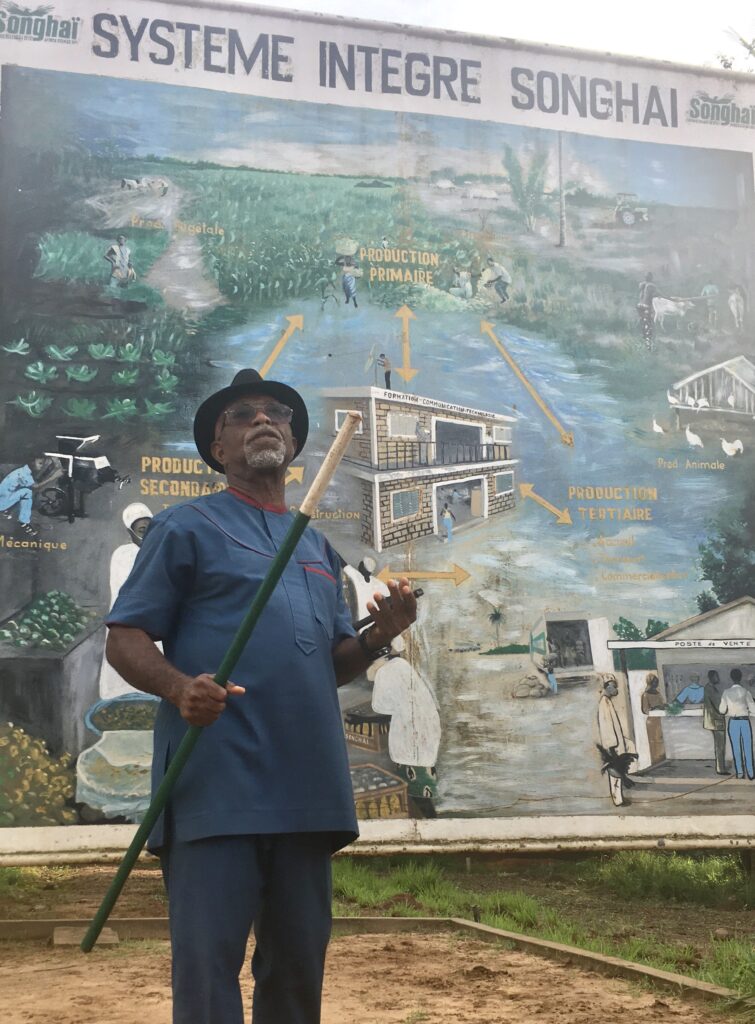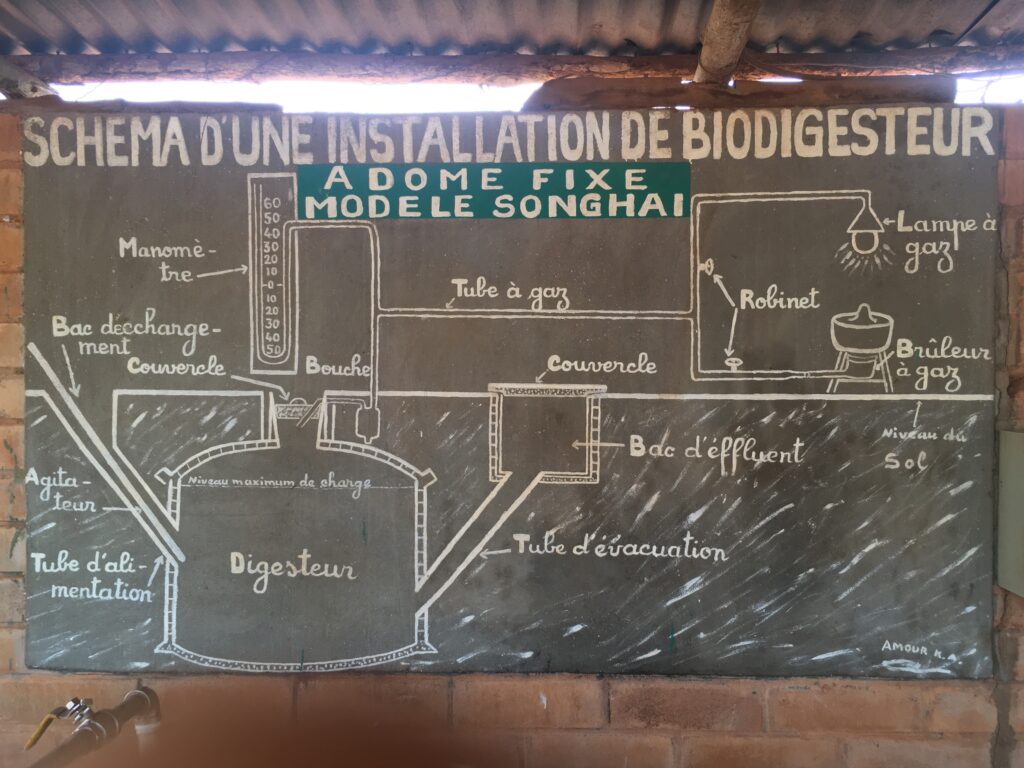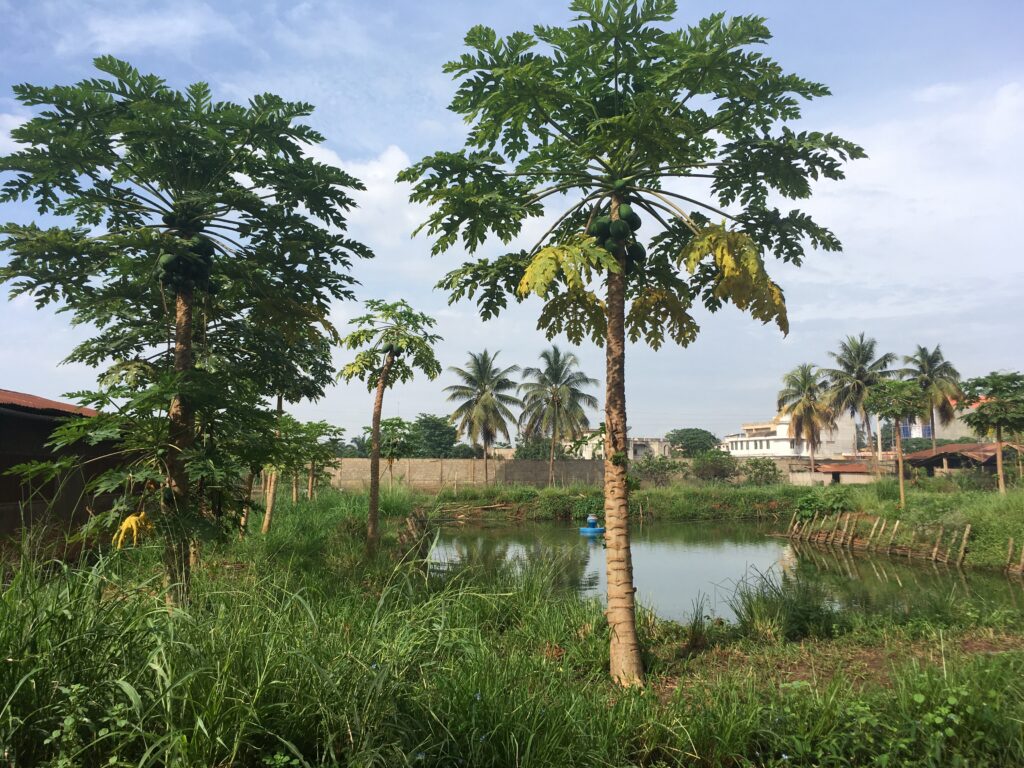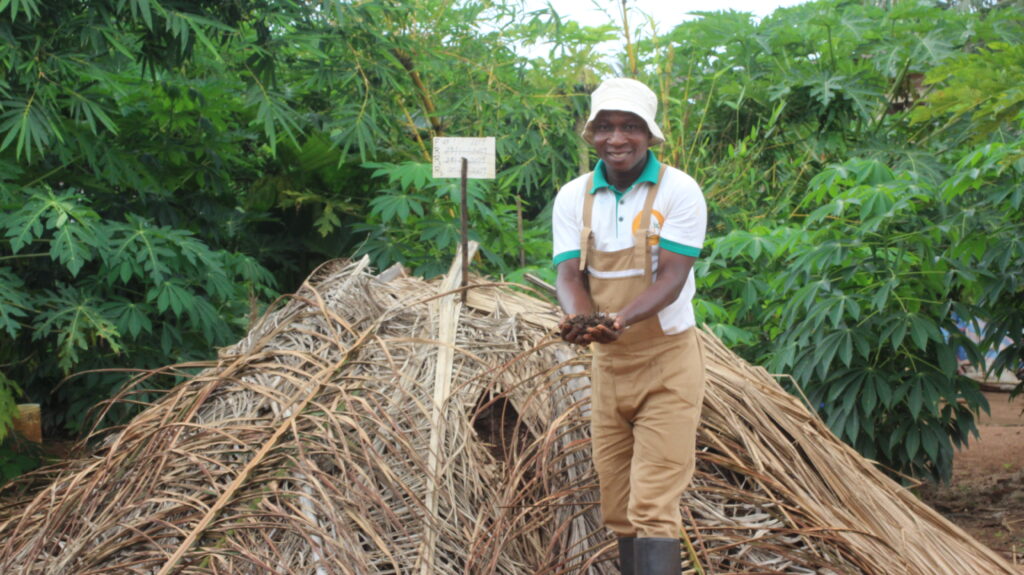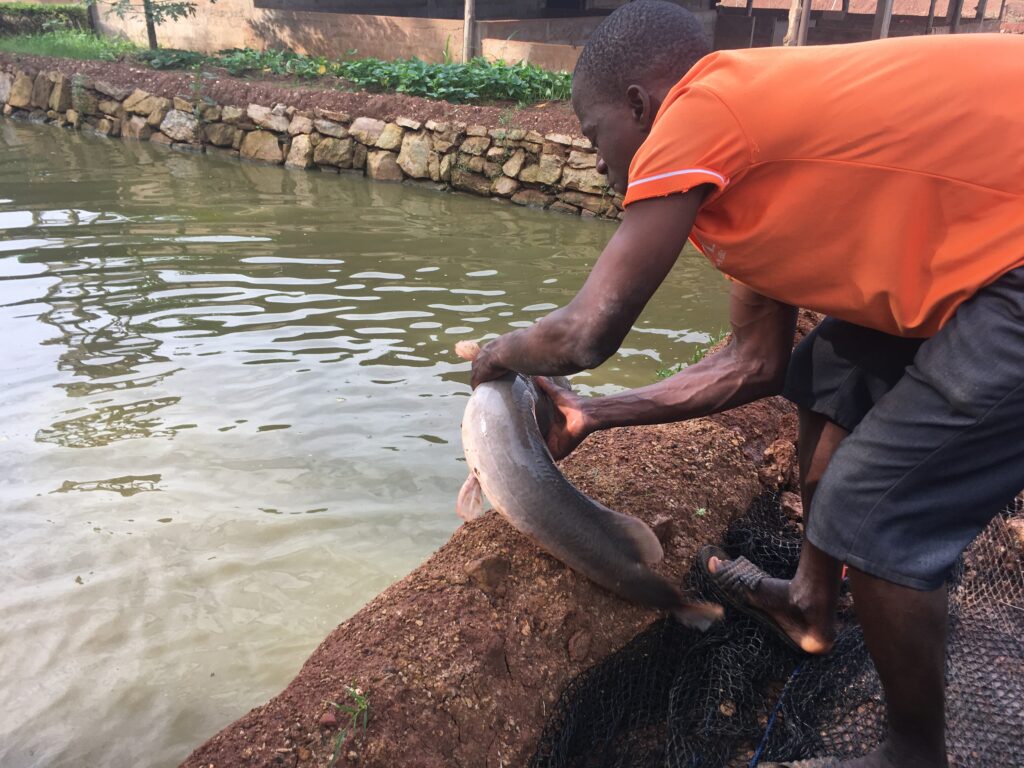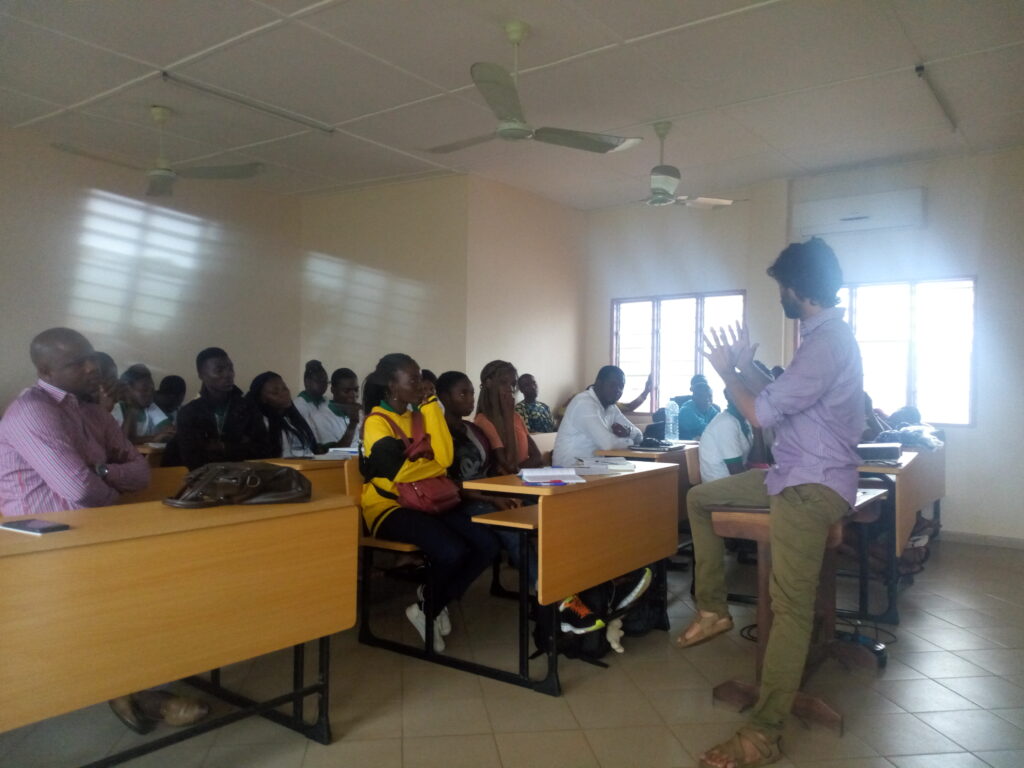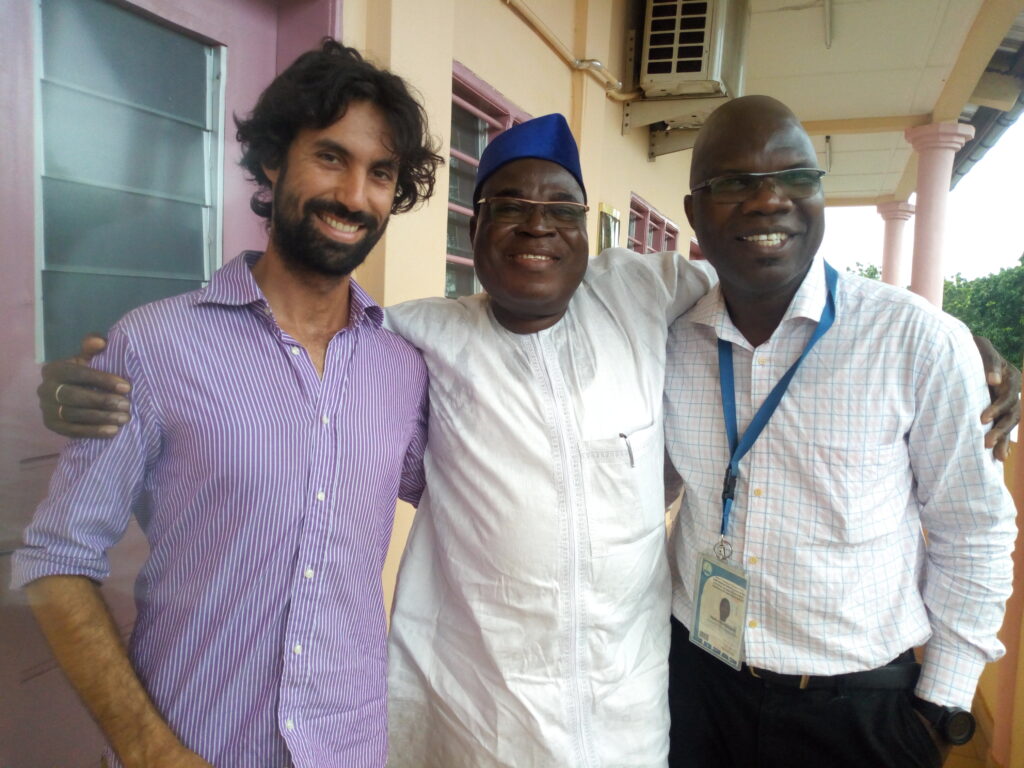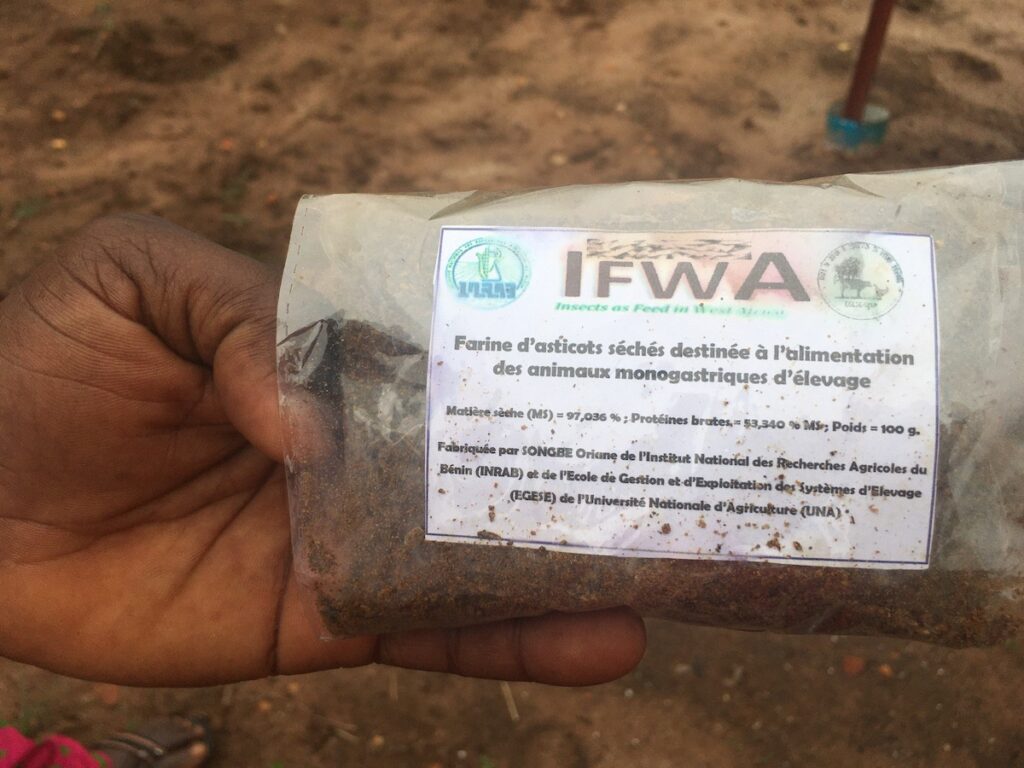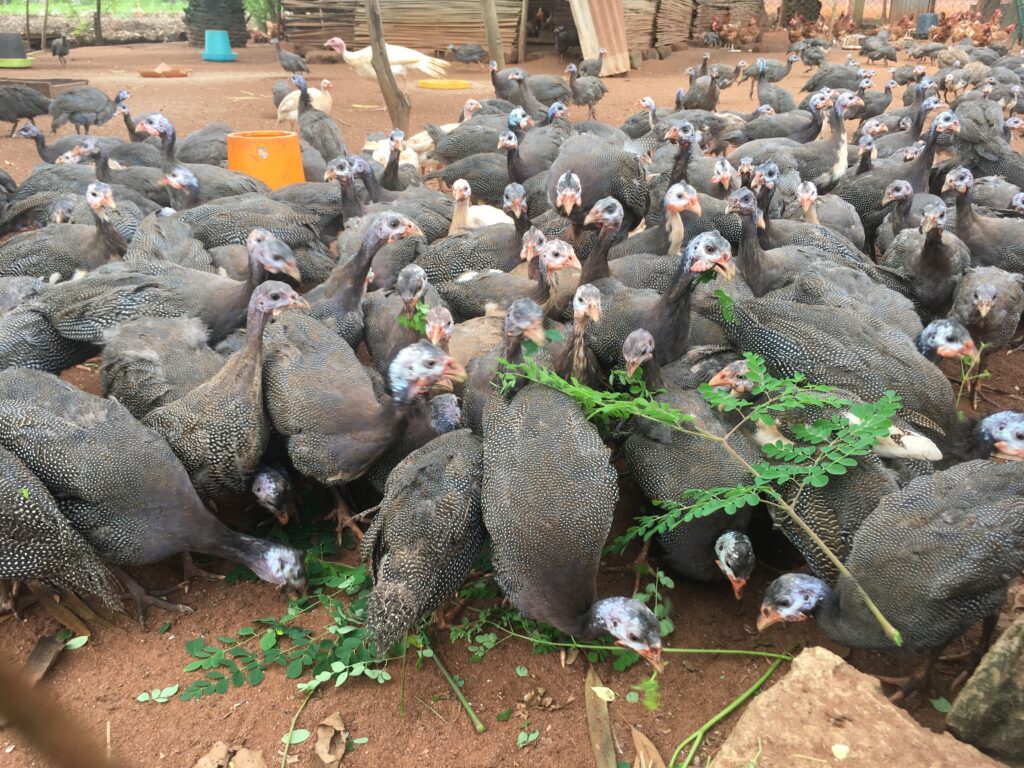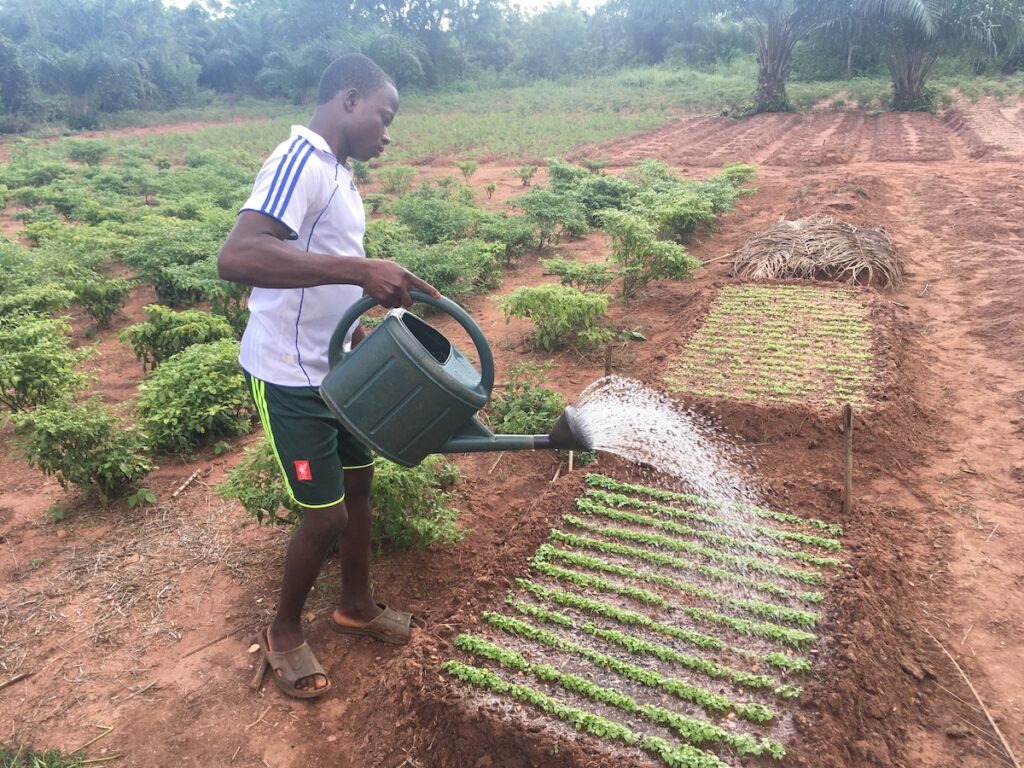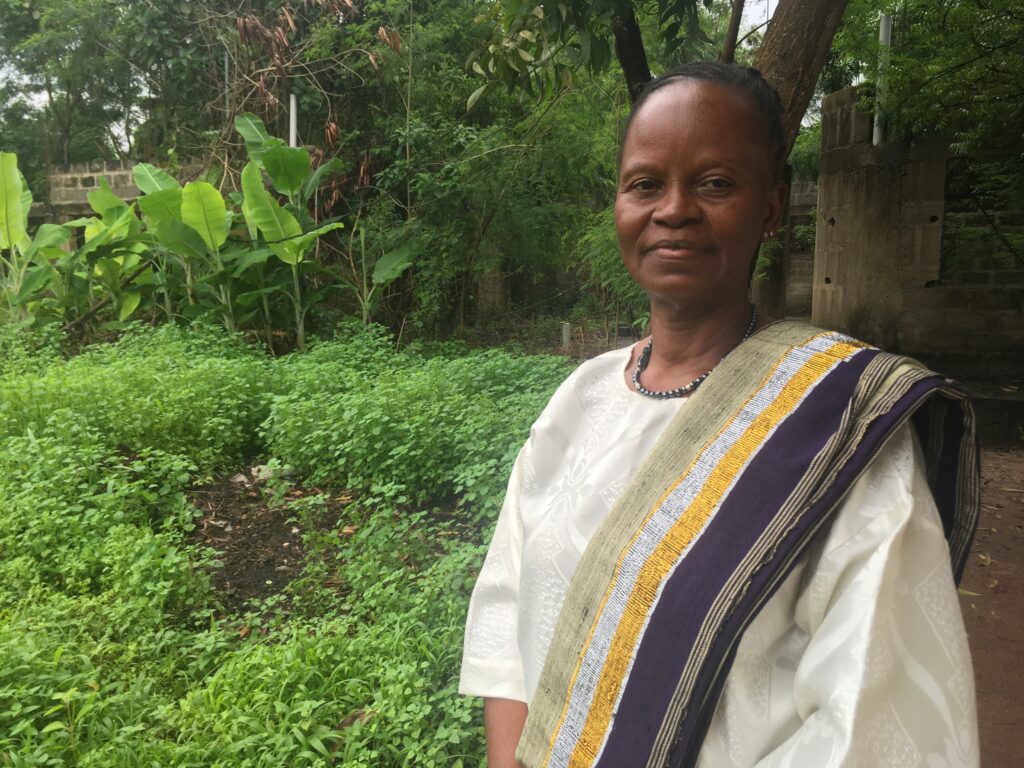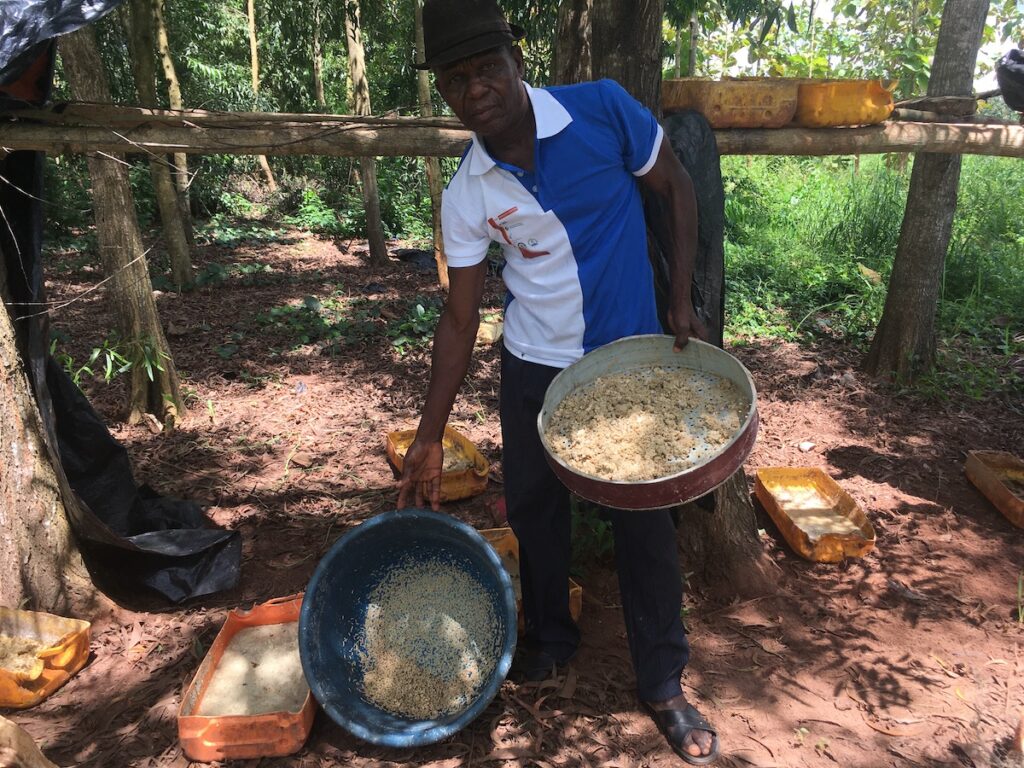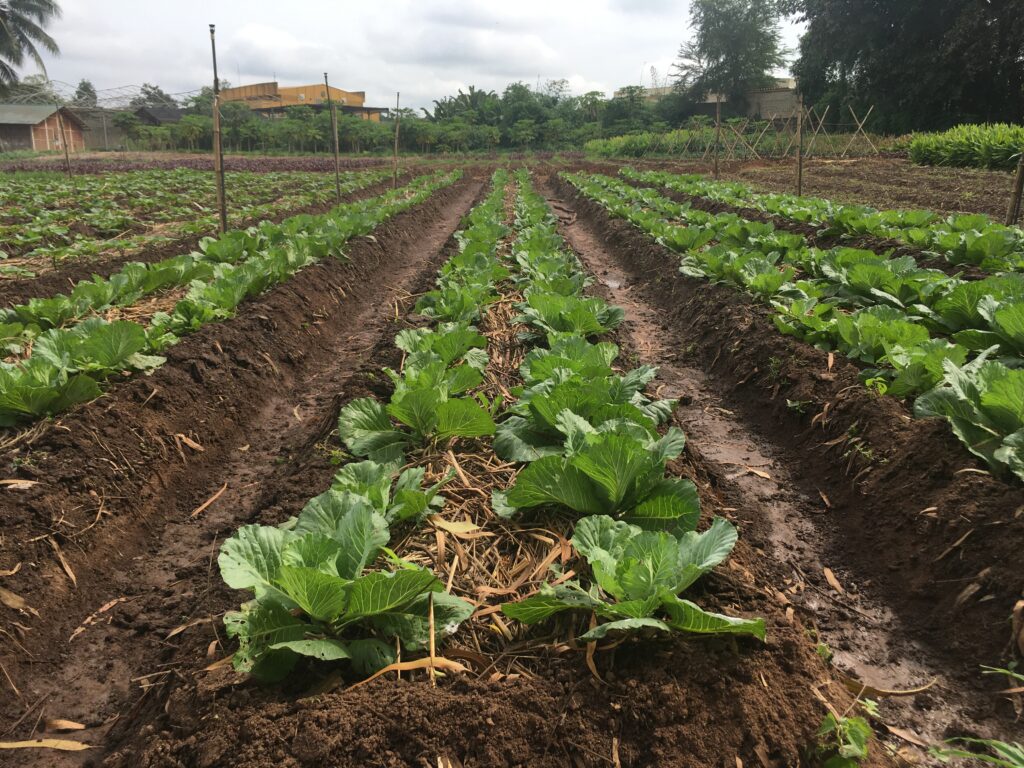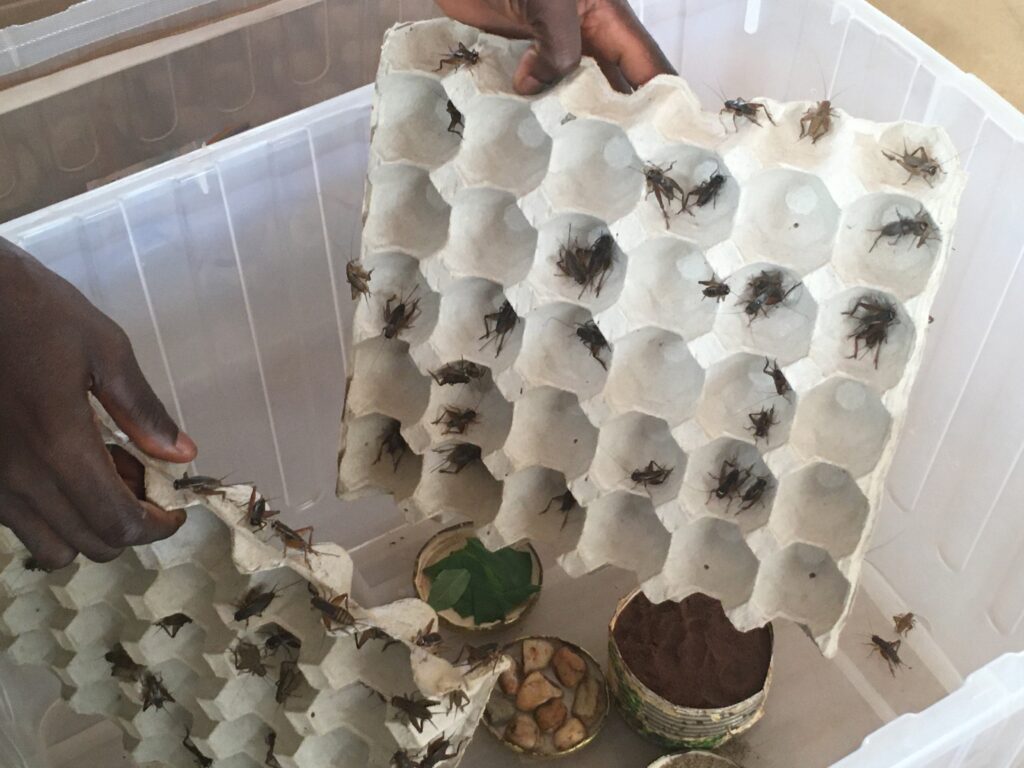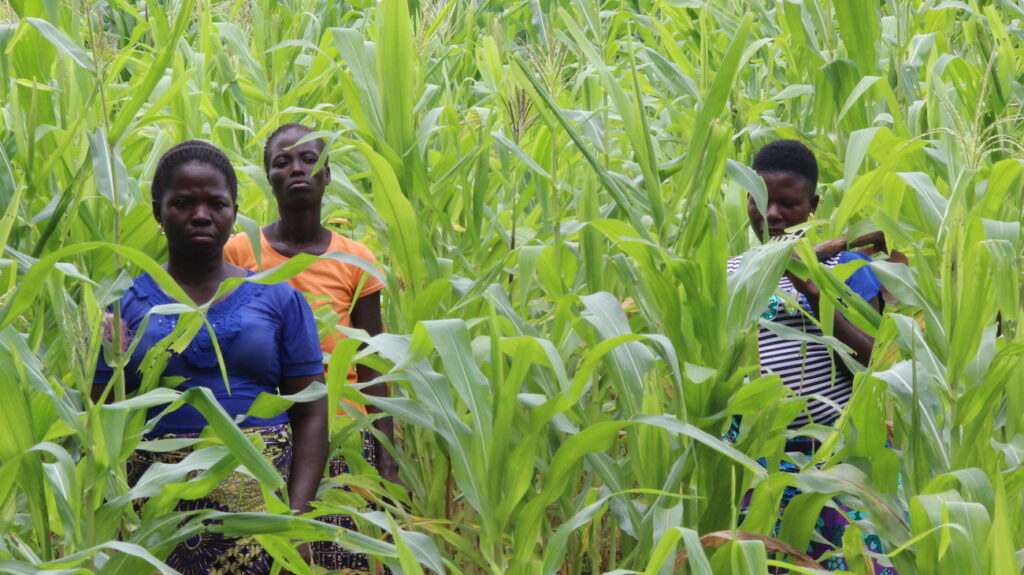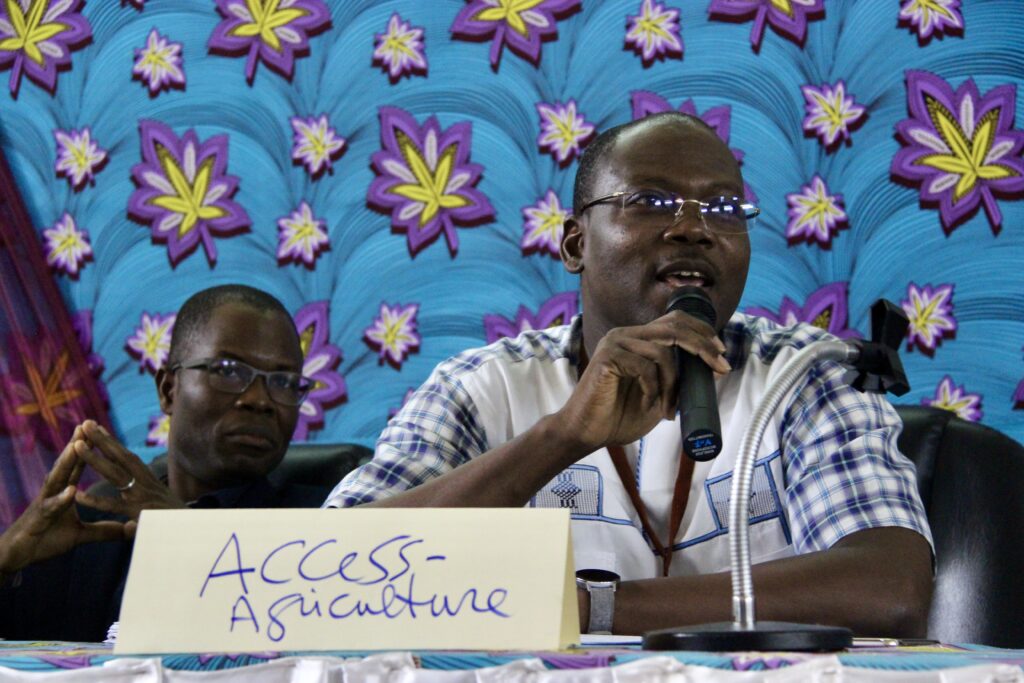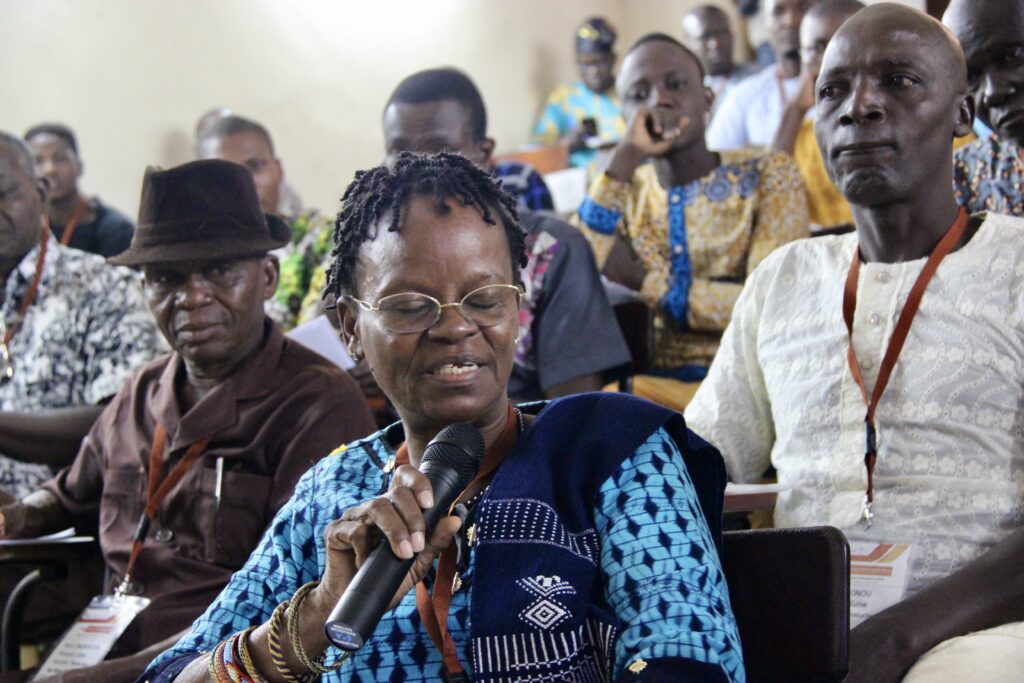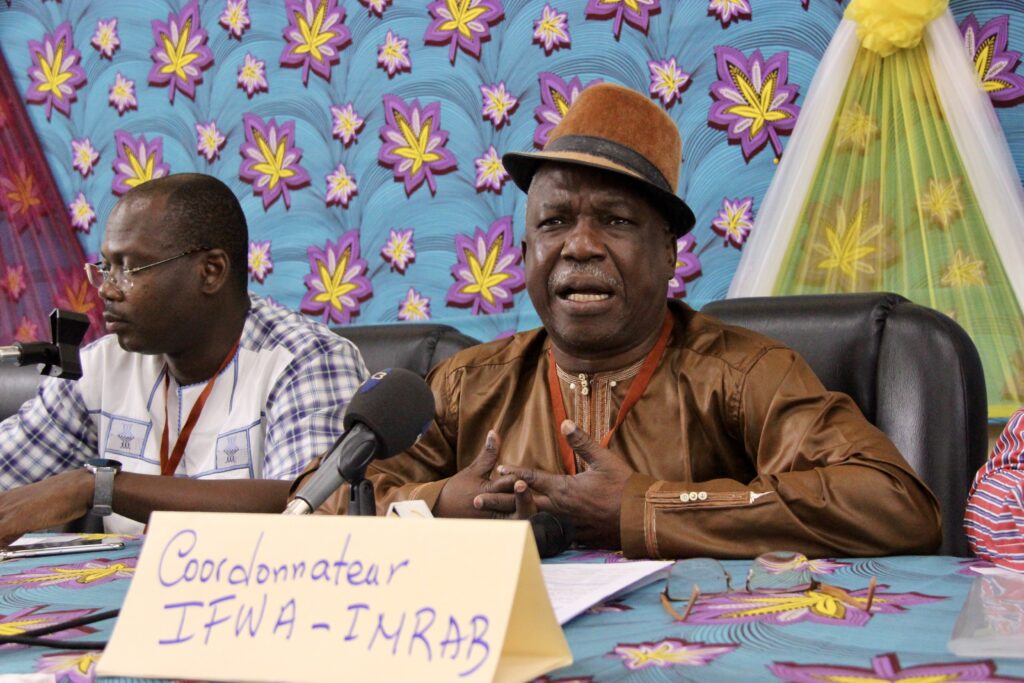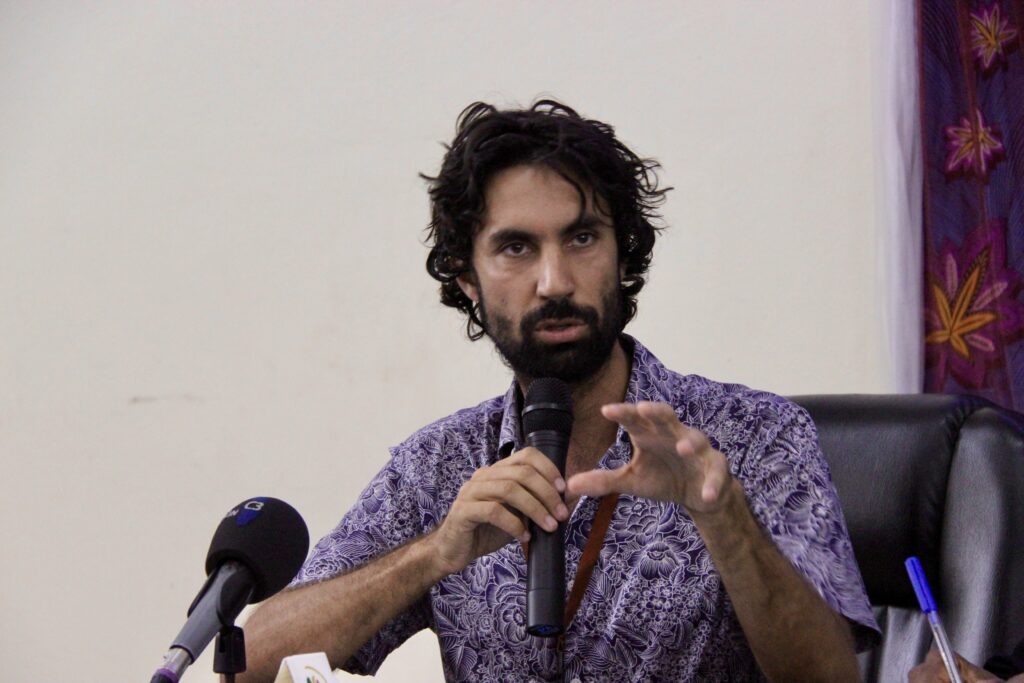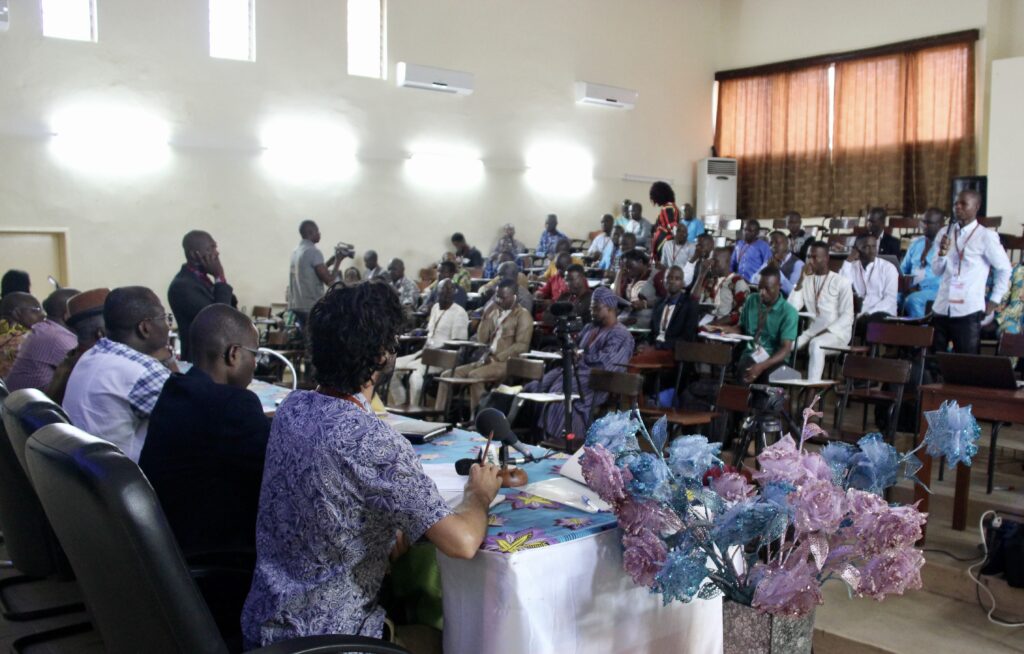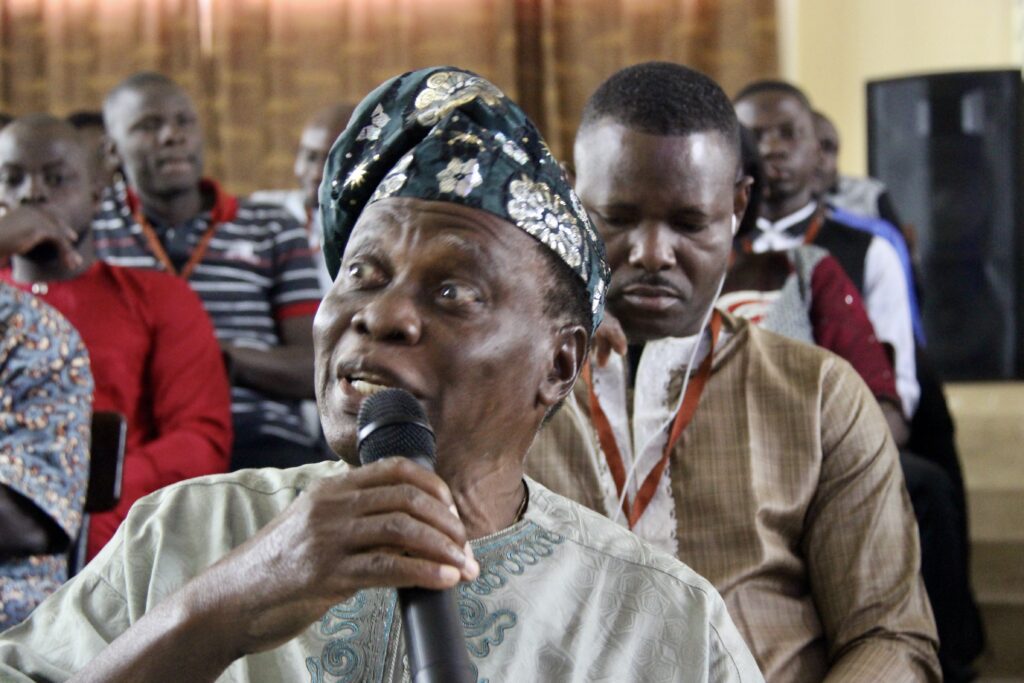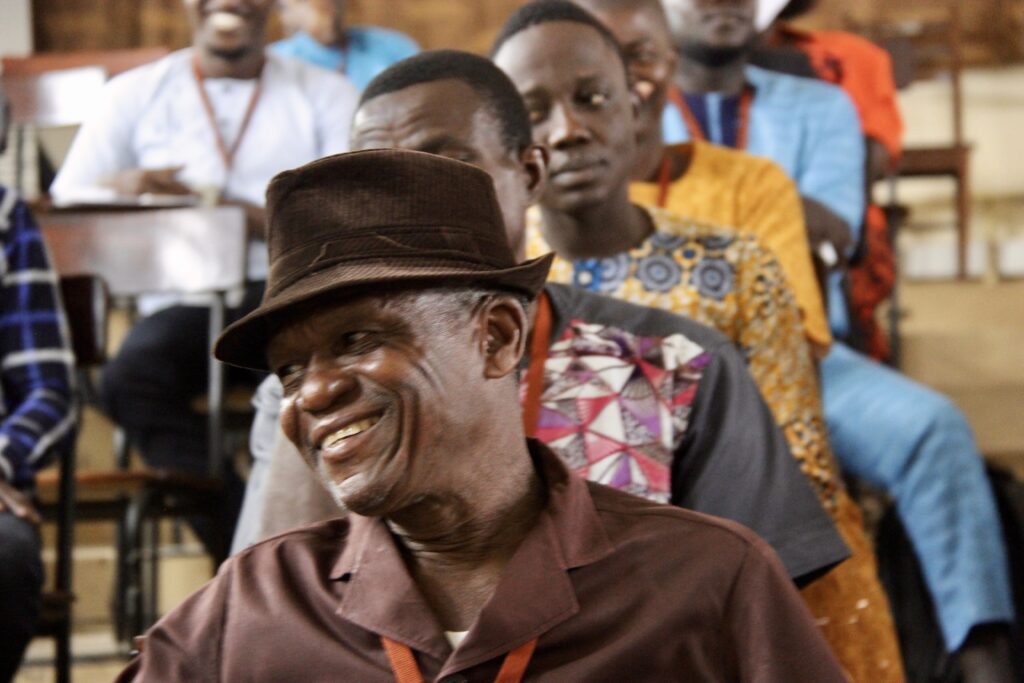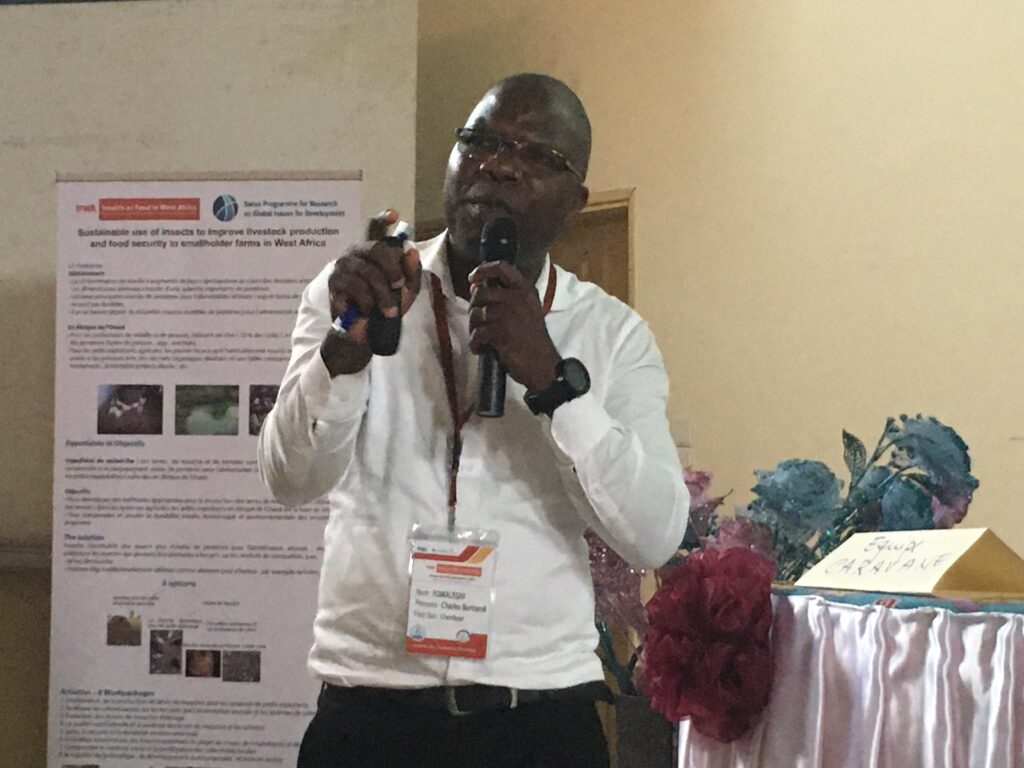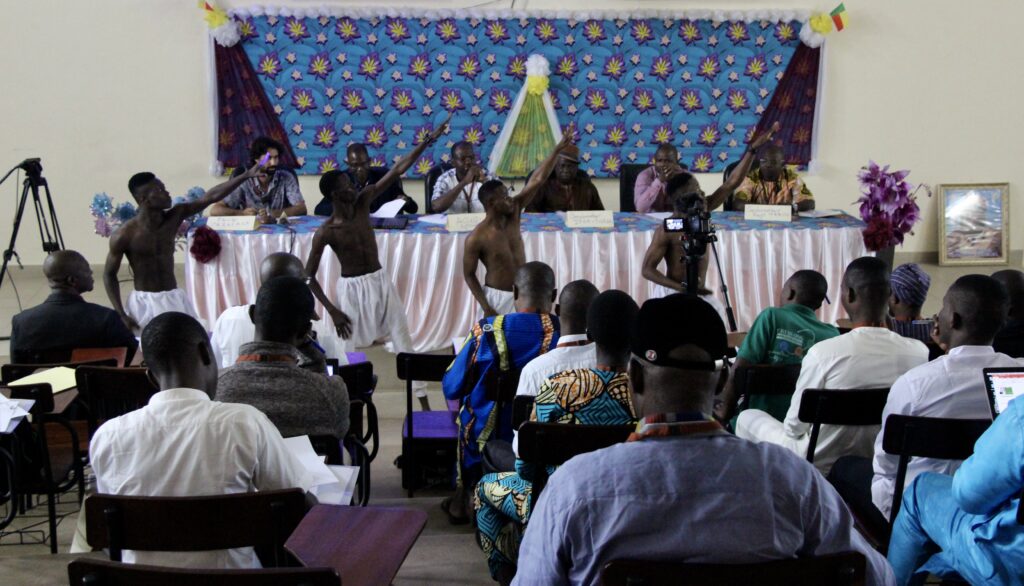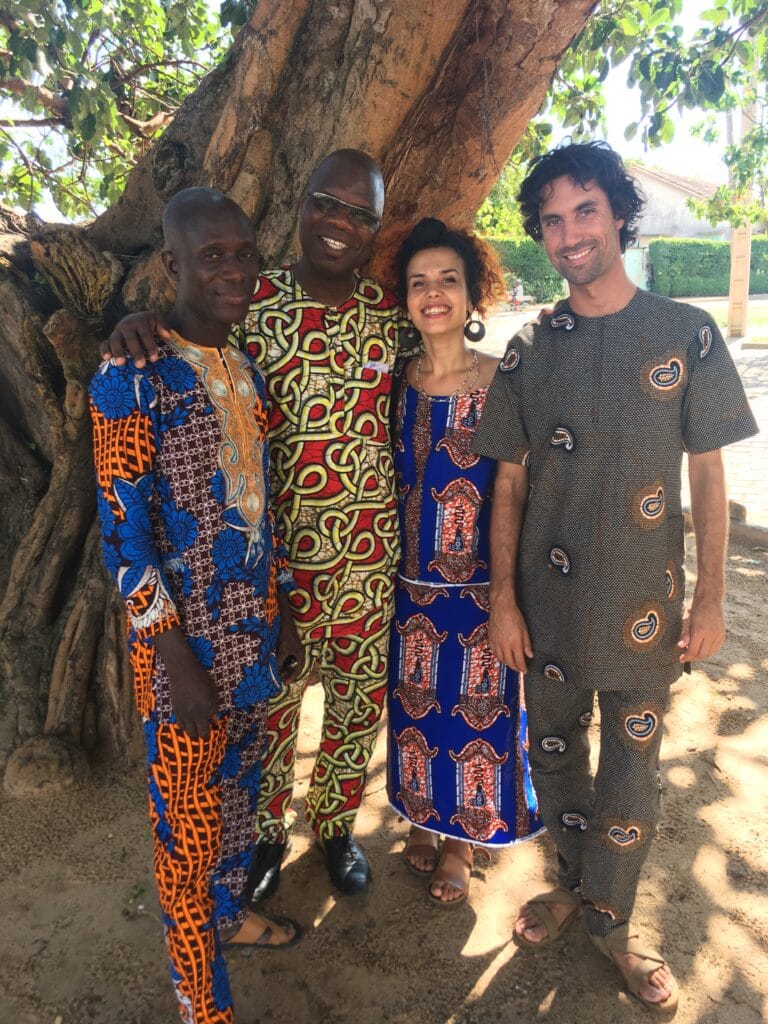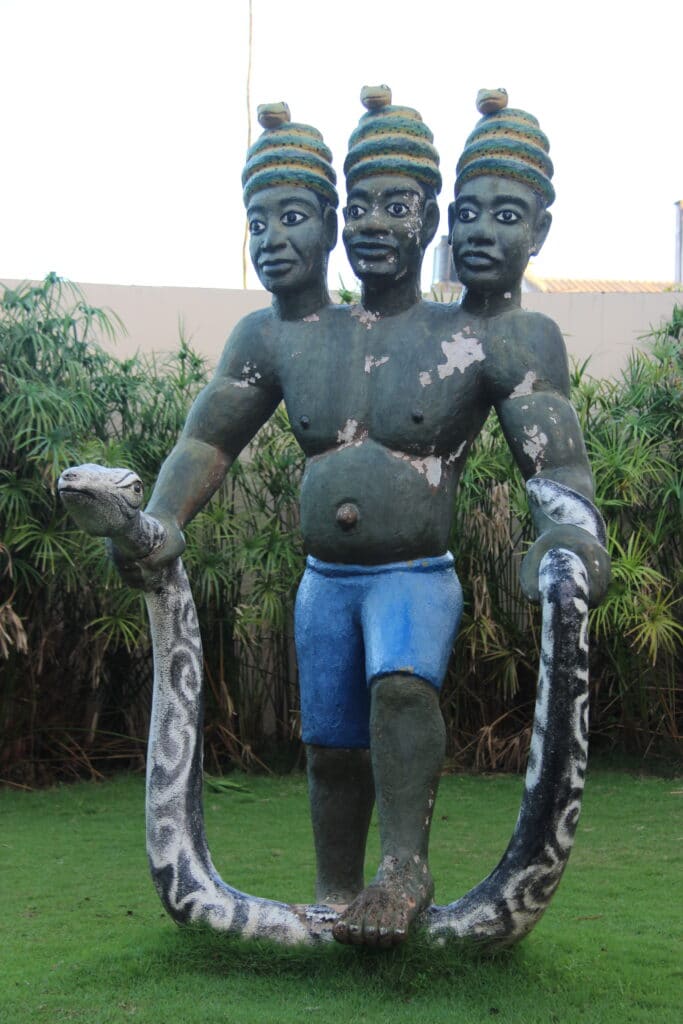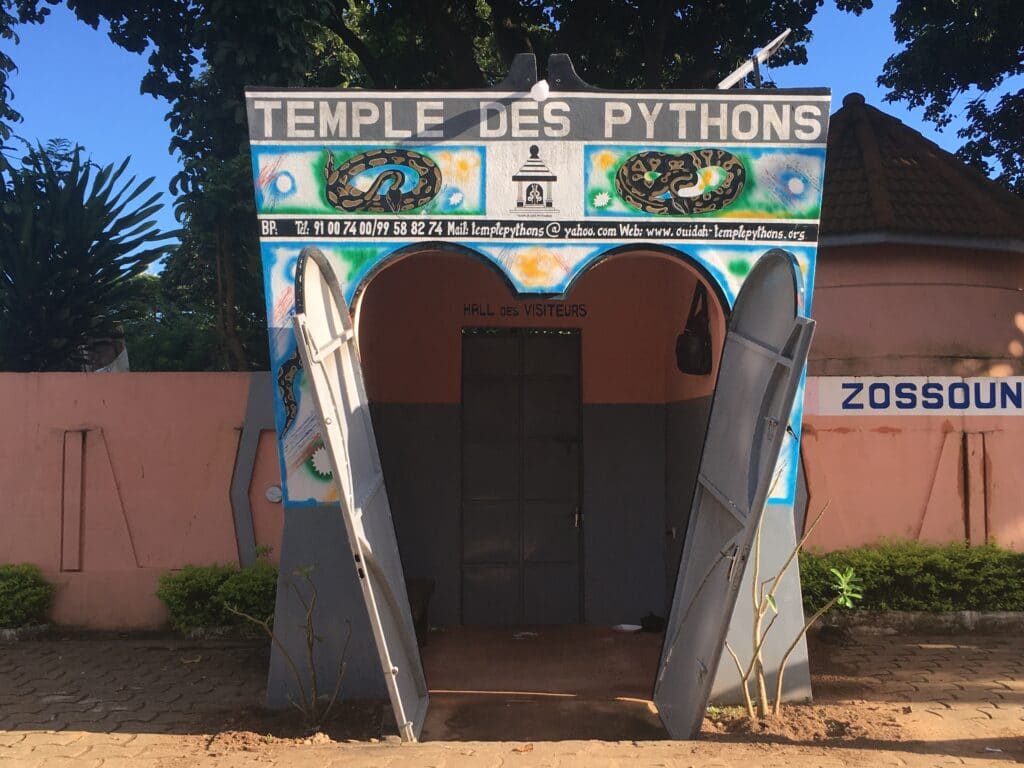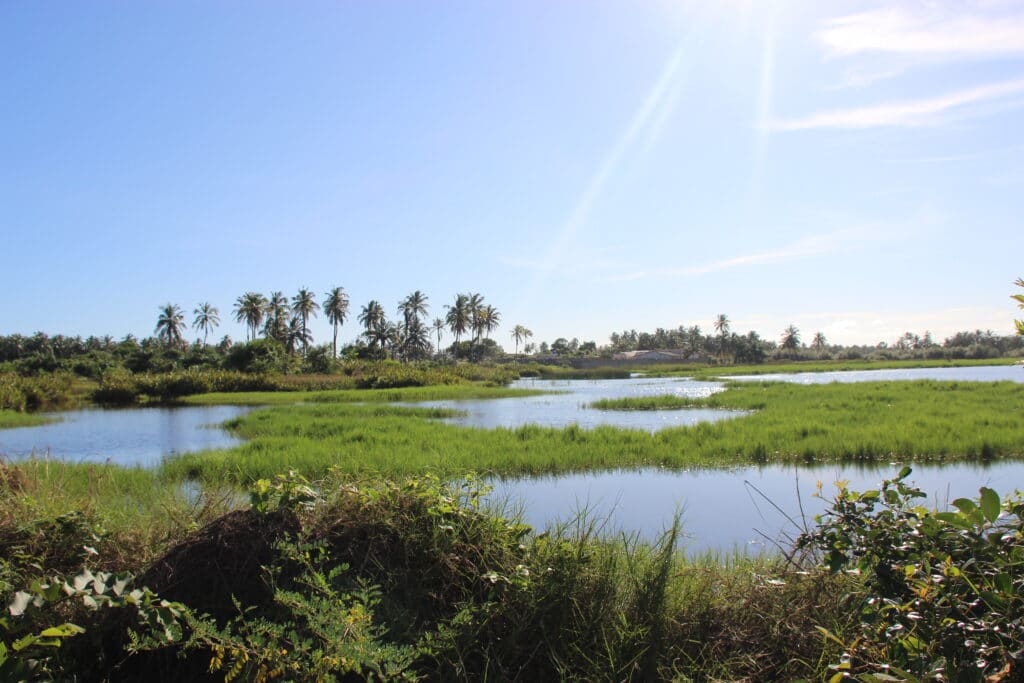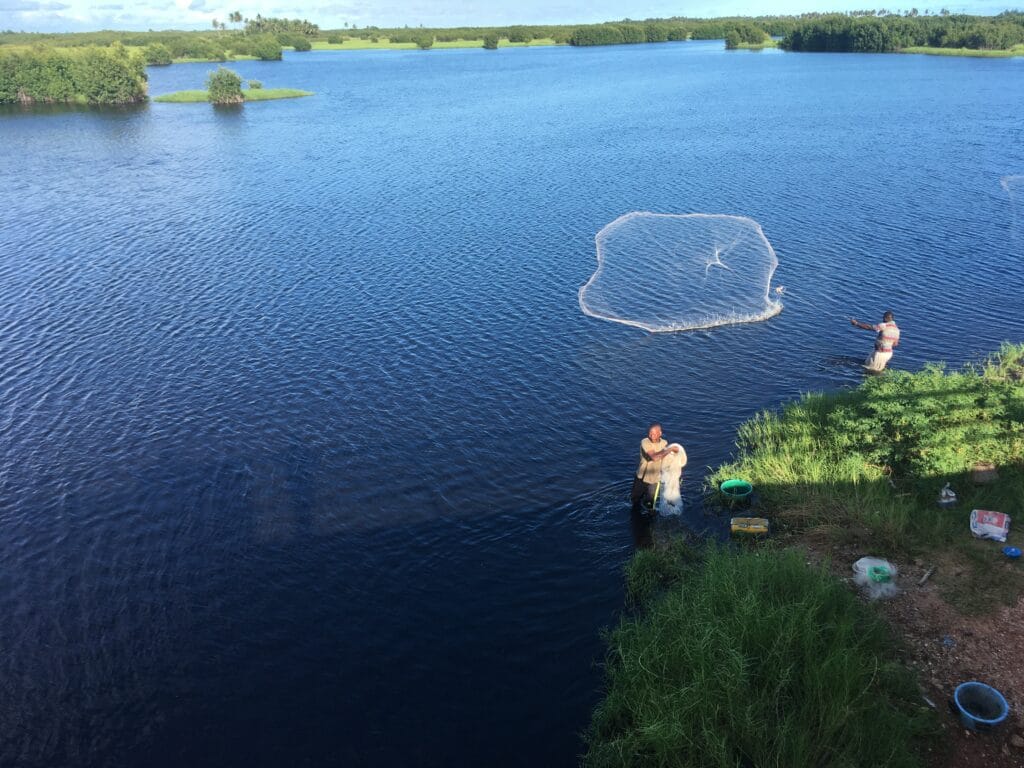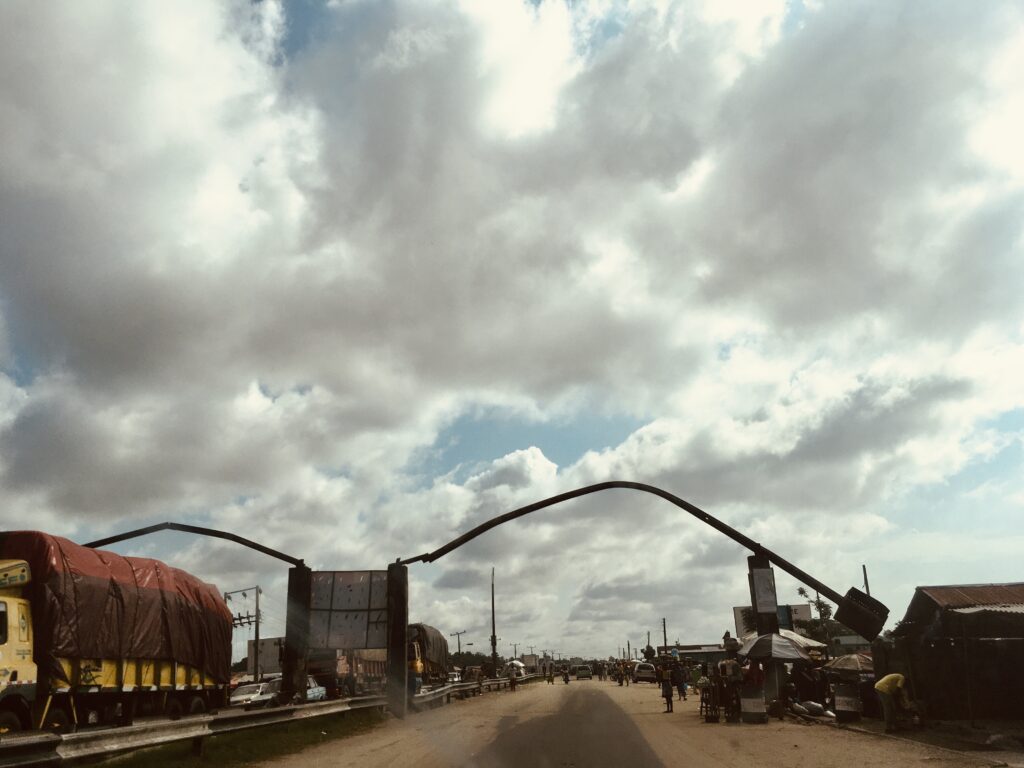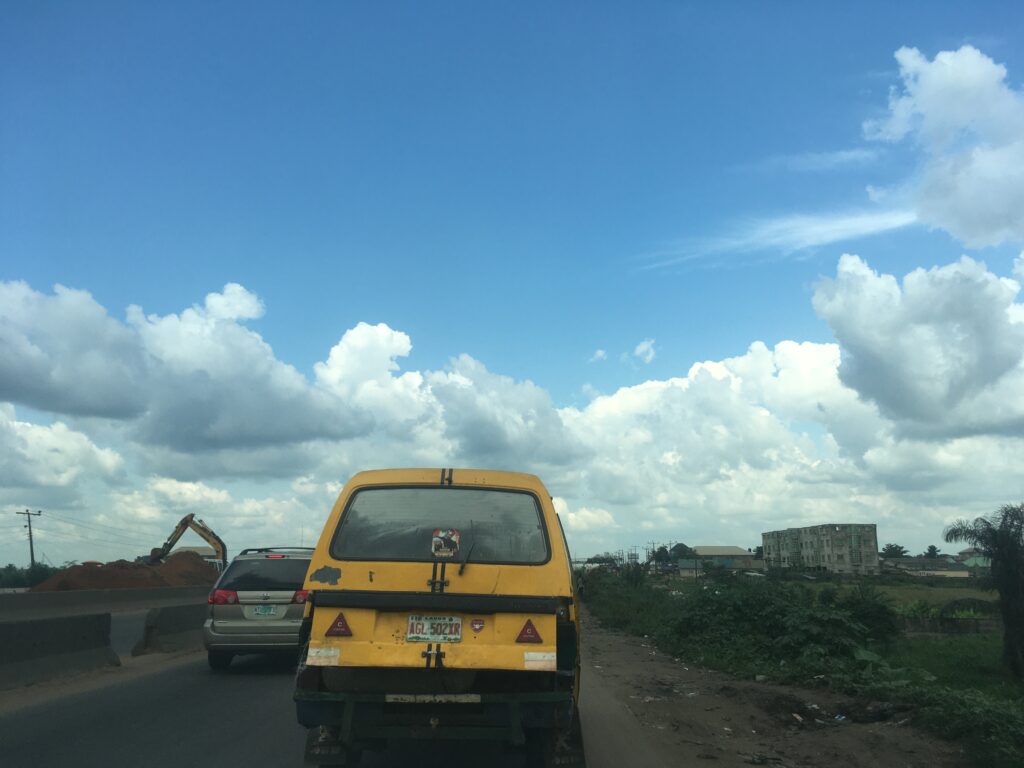[Français ci-dessous] Benin is a beautiful and laid back country and the hospitality of its people made it hard for us to leave!
Our team was lucky to have the support of a great local team working at INRAB (Institut National de Recherche Agricole du Bénin). We were fascinated by the number of agroecology related initiatives and groups in the country, building up an inspiring movement which already crosses the country’s borders.
The conference in Cotonou on the 25th October was a success, and many participants thanked the opportunity to facilitate the interweaving of a network of people and projects working with agroecology in Benin. Similarly to the other conferences organized by the caravan, the event brought academics, farmers, extensionists, NGOs and students together for a fruitful exchange of knowledge and experiences.
On the 26th we visited the inspiring Songhai project, a fantastic example of an initiative with a coherent and pragmatic vision for Africa’s food systems as integrated systems based on closed cycles. This project also incorporates the research for development spirit, bringing scientists and practitioners together. Due to its increased success and leadership in the regional agroecological scene, the Songhai project is now assisting the establishment of similar projects in Benin and West Africa.
On the 28th we held an open class in the Abomey-Calavi university in Cotonou, with the attendance of around 45 students from agronomy and food sciences but also other disciplines such as engineering. Four professors were also present. During the visit to the university, the caravan team has also been visited by the minister of industry and trade of Benin, Dr Ibrahim Poucoun Kombienou, who became aware of the caravan’s activities in the country and decided to ask for a meeting with the team. The minister also said a few words to the students about the importance of agro-ecology in the current times and its promising approach considering the multiples challenges society and agriculture face.
On the 29th we visited a few farmers working with the IFWA (Insect as Feed for West Africa) project in different rural communities. We were able to see how this research for development project facilitated the adoption of techniques such as the production of house fly larvae and black soldier fly larvae to feed poultry, thus making farmers more independent from conventional poultry feed and able to rely local resources, with clear economic and environmental advantages. One of the visited farmers took a step further and is now supplying the protein rich black soldier fly larvae to nearby chicken farmers.
After the memorable experiences in Benin, the caravan moves on to Nigeria for its last stage, and were we are being hosted by the IITA (International Institute for Tropical Agriculture) in Ibadan.
Au revoir Bénin, bienvenue au Nigeria!
Le Bénin est un pays magnifique et calme et l’hospitalité de ses habitants a rendu le départ difficile! Notre équipe a eu la chance de bénéficier du soutien d’une équipe locale travaillant à l’INRAB (Institut National de Recherche Agricole du Bénin). Nous avons été fascinés par le nombre d’initiatives et de groupes liés à l’agroécologie dans le pays, ce qui a permis de créer un mouvement inspirant qui traverse déjà les frontières du pays.
La conférence du 25 octobre à Cotonou a été un succès, et de nombreux participants ont remercié l’occasion de faciliter l’imbrication d’un réseau de personnes et de projets travaillant avec l’agroécologie au Bénin. Comme les autres conférences organisées par la caravane, l’événement a rassemblé des universitaires, des agriculteurs, des vulgarisateurs, des ONG et des étudiants pour un échange fructueux de connaissances et d’expériences.
Le 26, nous avons visité l’inspirant projet Songhai, un exemple fantastique d’initiative ayant une vision cohérente et pragmatique des systèmes alimentaires africains en tant que systèmes intégrés basés sur des cycles fermés. Ce projet intègre également l’esprit de recherche pour le développement, en réunissant des scientifiques et des praticiens. En raison de son succès croissant et de son leadership sur la scène agroécologique régionale, le projet Songhaï contribue désormais à la mise en place de projets similaires au Bénin et en Afrique de l’Ouest.
Le 28, nous avons organisé une classe ouverte à l’université Abomey-Calavi de Cotonou, à laquelle ont assisté environ 45 étudiants en agronomie et en sciences alimentaires, mais aussi dans d’autres disciplines comme l’ingénierie. Quatre professeurs étaient également présents. Lors de la visite de l’université, l’équipe de la caravane a également reçu la visite du ministre de l’industrie et du commerce du Bénin, le Dr Ibrahim Poucoun Kombienou, qui a pris connaissance des activités de la caravane dans le pays et a décidé de demander une rencontre avec l’équipe. Le ministre a également dit quelques mots aux étudiants sur l’importance de l’agro-écologie à l’heure actuelle et sur son approche prometteuse compte tenu des multiples défis auxquels la société et l’agriculture sont confrontées.
Le 29, nous avons rendu visite à quelques agriculteurs travaillant avec le projet IFWA (Insect as Feed for West Africa) dans différentes communautés rurales. Nous avons pu voir comment ce projet de recherche pour le développement a facilité l’adoption de techniques telles que la production de larves de mouches domestiques et de mouches soldat noires pour nourrir les volailles, rendant ainsi les agriculteurs plus indépendants de l’alimentation conventionnelle et capables de compter sur les ressources locales, avec des avantages économiques et environnementaux évidents. L’un des agriculteurs visités a fait un pas de plus et fournit maintenant les larves de mouche soldat noire, riches en protéines, aux éleveurs de poulets des environs.
Après les expériences mémorables au Bénin, la caravane se rend au Nigeria pour sa dernière étape, où nous sommes accueillis par l’IITA (Institut international d’agriculture tropicale) à Ibadan.
La route pour Nigeria…
